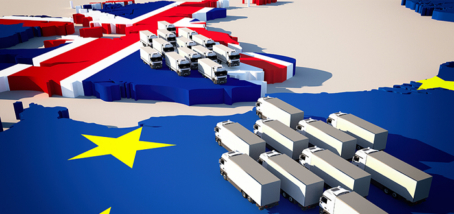-
BLACKOUT TECHNOLOGIES TARGETS TELEMATICS-INTEGRATED MOBILE DEVICE BLOCKING TO COMBAT SMARTPHONE DISTRACTION - 11 hours ago
-
Sparck Technologies awarded Royal designation - March 27, 2025
-
OpenADR Alliance announces first OpenADR 3.0 certified products with EVoke Systems, E.ON Energy and Universal Devices - March 25, 2025
-
Growing fulfilment and contract packer appoints new Managing Director - March 25, 2025
-
When is it time to invest in a WMS? Understanding the key trigger points - March 25, 2025
-
eCapital helps Vantage Recruitment on its journey to financial success - March 24, 2025
-
Hugo Beck Celebrates 70 Years of Packaging Innovation with Open House Events - March 20, 2025
-
PROLOG FULFILMENT SUPPORTS LUNA DAILY’S COMMITMENT TO BETTER BODY CARE FOR ALL WOMEN - March 19, 2025
-
Motion Ventures launches largest-ever maritime tech fund at $100M to meet the industry’s new pace of adoption - March 18, 2025
-
ITD GLOBAL APPOINTS GROUP CHIEF REVENUE OFFICER - March 17, 2025
Logistyx Technologies, the leader in transportation management for parcel shipping, has seen a 250% increase in customers using or close to implementing break bulk services as they try to cut Brexit-related cross-border shipping costs and paperwork. Interest in break bulk has been growing since the UK referendum to leave the European Union and has continued in the weeks after the transition period ended on January 1st.
Break bulk services involve consolidating multiple orders into one big shipment to cross the border in order to reduce shipping charges and paperwork. Once on the other side, the consolidated shipment is broken down into separate shipments for individual delivery.
Logistyx helps shippers ensure their labelling and documentation can support this and has seen customers achieve savings of more than 25% on their transportation costs by switching to a break bulk service rather than sending shipments individually. For one customer, the goods are picked up from their UK facility before being shipped in bulk to the Netherlands where they are broken down for delivery across the EU.
For large shippers sending multiple items, the economics of break bulk are clear. Not only is there a cost saving on the actual shipping charge, due to lower £/kg rates on higher weight shipments, but there is a corresponding reduction in the quantity and cost of paperwork. If 50 individual shipments are consolidated into one break bulk shipment, there is only one set of paperwork to clear customs, meaning less chance of delays at the border. With carriers charging for each invoice declared at the border, the savings opportunities are clear, and having only one carrier invoice to be checked, also means less work for the finance department.
“Although break bulk services have existed for some time, we have seen a huge upswing in interest over the last two to three years, not just to achieve cost savings, which help to offset newly introduced customs duties and taxes resulting from Brexit, but to simplify customs documentation, as there is just one set of paperwork to be processed,” said Ken Fleming, President, Logistyx Technologies.
“If there is a problem at the border, having one large shipment also means you will only have one problem to solve. Multiple issues can arise if you are transporting many individual shipments, which can slow things down,” explained Fleming.































